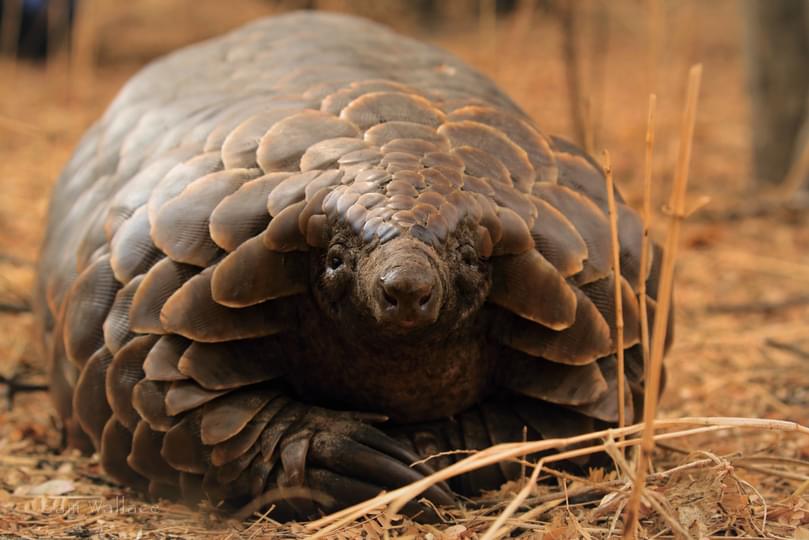
On Saturday, February 16th, the world will be celebrating World Pangolin Day – a day dedicated to bringing light to the eight pangolin species that roam our world and increase attention to the threats they face.
This day devoted to pangolins only started in 2012 and has contributed to the awareness-raising efforts taking place across the globe to bring attention to these incredible animals. With tigers, elephants, whales, gorillas, and many others, there isn’t a lack of charismatic species – and people everywhere love to learn about these well-known creatures, see stunning pictures of them in their habitats, and support their conservation from afar. Only recently, have pangolins started to carve their way into the spotlight to receive much-needed attention and support.
Pangolins have been identified as the world’s most traded wild mammal. The driving force of this trade is the demand for their meat, scales, and other parts, in China and Vietnam. All four species native to Asia are either endangered or critically endangered while all four African species are vulnerable on the IUCN Red List. The situation has become critical for pangolins in both continents – this month alone has seen some of the largest seizures of pangolins in Malaysia and pangolin scales in Hong Kong.
Fortunately, several groups are working tirelessly in and out of pangolin range countries to protect them in their habitats, rehabilitate and release those rescued from the trade, monitor and track those that have been released, strengthen law enforcement, and address consumption in end-markets.
As part of the Oxford Martin Programme on the Illegal Wildlife Trade, Doctoral Candidate, Alegria Olmedo, Postdoctoral Researchers Dan Challender and Diogo Verissimo, and Tasso-Leventis Professor of Biodiversity, E.J. Milner-Gulland, are working on a project supported by the National Geographic Society that will:
- Test the effectiveness of celebrities in a demand reduction campaign for pangolins in Vietnam;
- Quantify online pangolin trade and;
- Explore the potential effects of pangolin farming on demand and on wild populations.
The research team is collaborating with Save Vietnam’s Wildlife, Sun Yat-Sen University, Flora and Fauna International and the Zoological Society of London to implement this project
This opinion piece reflects the views of the author, and does not necessarily reflect the position of the Oxford Martin School or the University of Oxford. Any errors or omissions are those of the author.